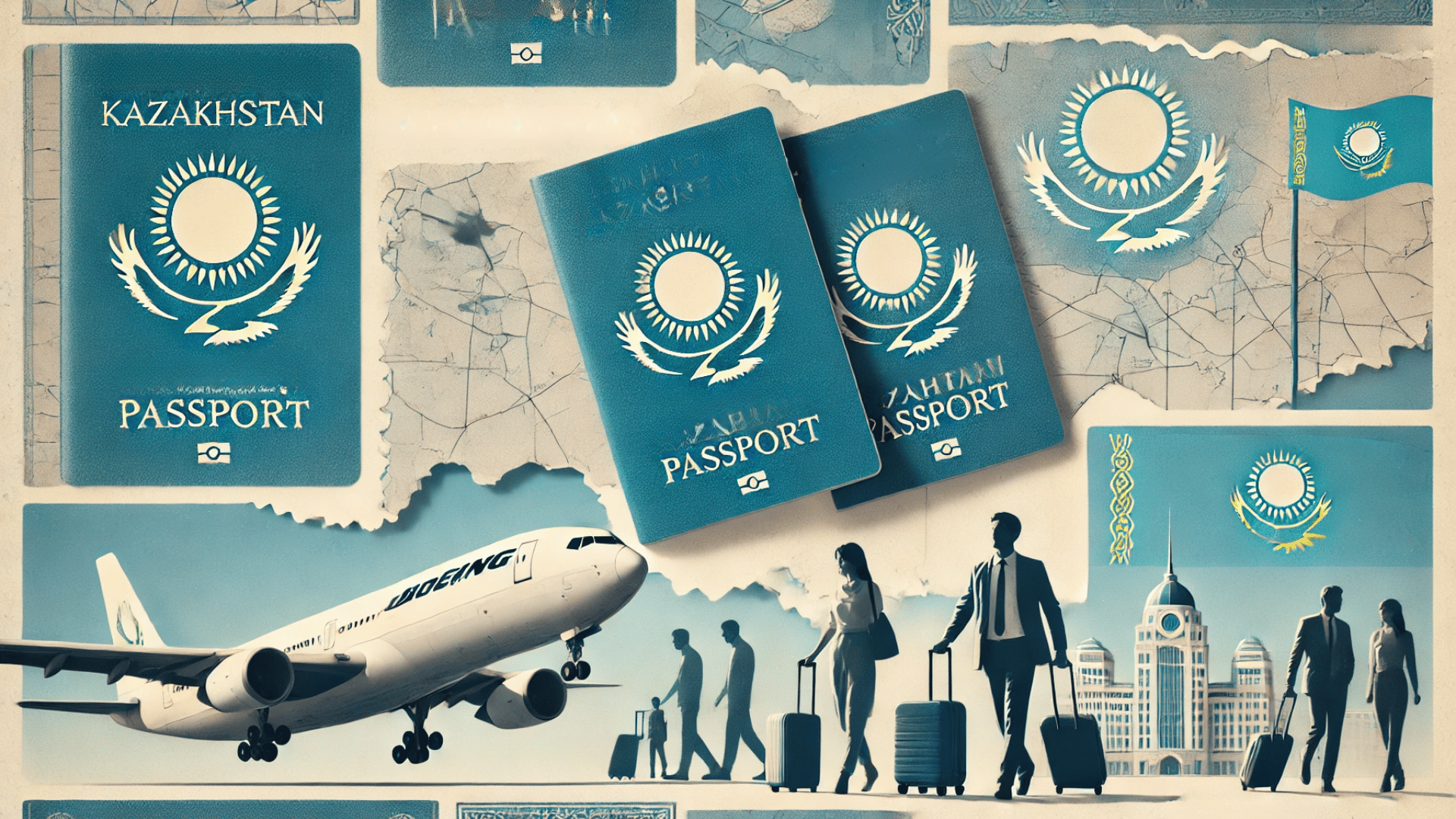
Kazakhstani citizens are entitled to visa-free or simplified entry to more than 80 countries around the world. What other benefits does the Kazakhstani passport offer?
According to the 2025 global passport rankings by Henley & Partners, Kazakhstan ranks 63rd, granting its citizens visa-free or visa-on-arrival access to 80 countries. Depending on the methodology used by various indexes, the position of Kazakhstan's passport may vary.
For example, in the 2025 Passport Index by Arton Capital, Kazakhstan ranks ten places higher—53rd—offering access to 96 countries (48 visa-free and 48 with visa on arrival).
Meanwhile, VisaGuide’s 2025 passport ranking places Kazakhstan at 108th, although it also notes that Kazakhstani citizens enjoy visa-free access to 50 countries and simplified entry to an additional 31.
However, the strength of a passport is measured not only by the number of countries accessible without a visa. Rankings such as those from Immigrant Invest are based on World Bank data on ease of doing business and taxation, considering overall quality of life, family safety, and asset protection. According to two such indices, Kazakhstan ranks 23rd out of 151 countries for asset protection and 62nd for quality of life.
Informburo.kz examines the opportunities and privileges associated with the Kazakhstani passport.
1. Visa-Free Travel
The official list of visa-free destinations for Kazakhstani citizens is published on the website of the Ministry of Foreign Affairs of Kazakhstan. The list is divided into three categories:
Diplomatic passports grant access to the widest range of destinations, followed by service passports—likely contributing to differing results across various rankings. The national passport allows visa-free access to 40 countries. In the past year, Vietnam, Macau, Morocco, Thailand, and Sri Lanka have been added to the visa-free list.
Kazakhstani citizens may enter Georgia without a visa and stay for up to one year. In Armenia and Saint Vincent and the Grenadines, they can stay for up to 180 days. A 90-day visa-free stay is available in countries including Albania, Andorra, Colombia, Haiti, Moldova, Mongolia, Russia, Turkey, and Ukraine.
Montenegro, which previously offered a seasonal visa waiver (from March 1 to November 1), has extended visa-free access through December 31, 2025. Tourists must register within 24 hours of arrival and may stay up to 30 days without a visa.
In Egypt, Kazakhstani citizens can enter the resort city of Sharm El Sheikh without a visa for up to 13 nights. For longer stays or travel beyond the Sinai Peninsula, a visa is required, which can be obtained on arrival at the airport for USD 25, valid for up to 30 days.
2. Right to Work and Start a Business
Kazakhstani citizens can legally work, open businesses, and benefit from certain economic privileges not only within Kazakhstan but also in other member states of the Eurasian Economic Union (EAEU).
In Russia, Belarus, Armenia, and Kyrgyzstan, citizens of Kazakhstan do not need to obtain work permits or visas; a valid passport and an employment contract are sufficient. Businesses can be registered under the same conditions as for local citizens.
Kazakhstan has also signed bilateral agreements with other countries. For example, since 2010, an agreement with Vietnam allows mutual temporary employment. An agreement under the Employment Permit System with South Korea is currently being finalized, which will enable Kazakhstani citizens to work legally in South Korea.
Kazakhstani citizens may also participate in international mobility programs such as the U.S. "Work and Travel" and the EU’s "Erasmus+".
As for business opportunities within Kazakhstan, according to the asset protection ranking based on World Bank data on business climate and taxation, Kazakhstan ranks 23rd—higher than Russia, Estonia, and Morocco.
3. Consular Protection Abroad
One of the key responsibilities of the Ministry of Foreign Affairs is to protect the rights and interests of Kazakhstani citizens and legal entities abroad.
In the event of lost or stolen documents, the Ministry will:
In legal matters—such as detention, arrest, or court proceedings—the Ministry will:
In emergency situations abroad—such as natural disasters or serious health issues—Kazakhstani citizens can rely on the Ministry’s support for:
Embassies and consulates also help with documentation and the repatriation of remains, if needed.
4. Electoral Rights
Kazakhstani passport holders have the right to vote and to run for public office. The Law on Elections in the Republic of Kazakhstan guarantees universal suffrage, both active and passive.
5. Access to Education, Healthcare, and Social Security
In addition to mobility and labor rights, the Kazakhstani passport guarantees access to education, healthcare, and social protection within the country.
Education:
Healthcare:
Social protection:
Source: Informburo.kz